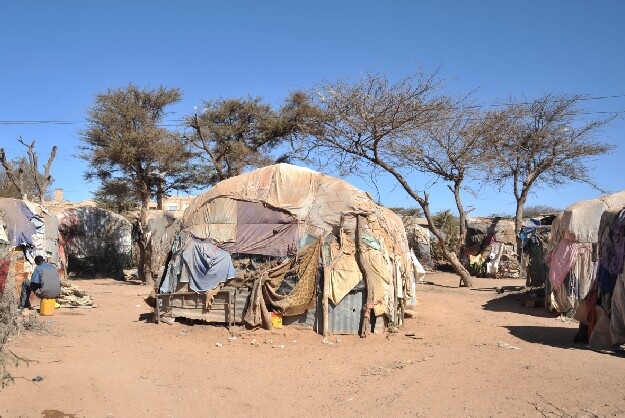A Closer Look Into a Worldwide Problem

There currently exist an unprecedented number of international refugees and forcibly displaced migrants—a reported 22.5 million and 65.6 million respectively worldwide1—and most are attempting to escape persecution, war or an otherwise dangerous environment.2 With such a prodigious number of displaced people, critical public health issues, such as access to healthcare, need to be addressed to ensure that migrants’ basic needs are met during their difficult transition into a new and often unfamiliar place.
To understand just how epic in scope refugee healthcare needs are, consider these statistics:
- There are 250 million international migrants in the world3
- 28,300 are forcibly driven from their homes every day because of safety concerns1
- 86 percent of forcibly displaced people end up staying in developing countries3
Understanding Migrant Impact on Host Communities

Once we comprehend the sheer magnitude of the number of global refugees and migrants, it’s easier to understand the worldwide public health crisis associated with these populations. It’s a problematic truth that developing countries can face serious financial and infrastructural challenges in hosting enormous influxes of people, so providing the proper healthcare for the increased population is often a difficult task. This includes not only access to doctors and other health professionals, but also the ability to provide proper nutrition and healthy living environments to migrant populations. Furthermore, if basic health needs remain unmet, the outcomes could spiral into a greater public health and financial challenge for the host communities.
To make matters even more complicated, since many refugees and migrants are fleeing conflicts in their home countries, they could very well be entering a new place with an existing and/or urgent health need such as an injury that could require immediate and potentially costly care.
So what can be done to help ensure the growing refugee and migrant populations around the globe have access to proper healthcare and healthy living situations?
Exploring Solutions for Migrant Health and Survival

For starters, understanding exactly where refugees are being hosted can help. Five percent of the world’s refugees come from either Syria, Afghanistan or South Sudan, so it’s perhaps unsurprising that the three leading nations for refugee hosting are the respectively adjacent countries of Turkey, Pakistan and Ethiopia.1 Knowledge of typical migration patterns in times of humanitarian crisis can allow both individuals and organizations to prioritize health needs and then give help in the most appropriate ways.
From there, it’s important for the hosting nations to work together with the larger global community. Communication and combined efforts between hosting countries and other countries that are willing to help can go a long way in supporting the survival needs of refugees in a new place. This requires the whole world to realize and accept that helping refugees stay healthy and safe is not solely the responsibility of the countries hosting them. Working with neighboring countries to help spread out the financial demand and difficulty of hosting large populations could not only help refugees access better care, it could greatly ease the burden for the countries involved as well.
There are also a host of great nonprofits and organizations working around the globe to help solve the global refugee health crisis—organizations like Doctors Without Borders, which is actively sending medical professionals to the areas of greatest need.4 Contributing money, time or expertise to organizations like these can go a long way in helping refugees around the world.
Ultimately, it’s critical for people to stay educated on the issues surrounding refugees and displaced migrants. Understanding the specific health needs of migrants will allow you to intervene on a multitude of different health issues and advocate for targeted policy change that can make a real difference in the lives of millions in need.
Dive into the social and legal factors impacting public health on a global scale, and learn how you can help manage and improve the health of displaced populations in a culturally competent manner. To find out more, look into the Kent State University online Master of Public Health.
- Retrieved April 2, 2018, from unhcr.org/en-us/figures-at-a-glance.html
- Retrieved April 2, 2018, from unhcr.org/en-us/refugees.html
- Retrieved April 2, 2018, from who.int/migrants/en/
- Retrieved April 2, 2018, from nytimes.com/interactive/2017/your-money/refugee-organizations-support.html
